Audio
Track:
About
Just listen to the titles of Walt Whitman’s poems–
I Sing the Body Electric
Song of Myself
A Song of Joys
A Song for Occupations
Song of Prudence
Song of the Answerer
Song of the Broad-Axe
A Song of the Rolling Earth
Song of the Universal
For Whitman, music was a central metaphor in life and work, both as a metaphysical mindset and as a practical reality. He was blessed with an extraordinary ear for inner rhythms which he then articulated in the radically free, rolling, thrusting verses that revitalized the entire world of poetic language. That same ear led the poet to the appreciation of classical music. This was a largely self-taught quest in which Whitman relied on both his innate musicality and his experience as a music journalist to formulate aesthetic principles that would carry over into his poetry.
Whitman and Classical Music
In the Broadway Journal of November 29, 1845, Whitman wrote his now-famous essay Art-Singing and Heart-Singing, in which he denounced as decadent the stale, second-hand foreign method with its flourishes, its ridiculous sentimentality, its anti-republican spirit and its sycophantic influence, tainting the young taste of the Republic. The poet claimed he preferred untutored voices and folk groups like the Hutchinsons and the Cheney sisters to trained songbirds like Jenny Lind, whom he found too showy. His initial objections stemmed from the same wary reserve he applied to all imported forms of culture; he insisted that America needed to create its own new frontier voice, vigorous and free.
“I say no land or people or circumstances ever existed so needing a race of singers and poems differing from all others,” Whitman wrote in “A Backward Glance O’er Travel’d Roads.” Yet despite his Emersonian insistence on “ignoring the courtly Muses of Europe,” it was only by exposure to European opera and art song that Whitman began to discover the essentiality and universality of classical music’s language. That exposure came during the 1840’s and 1850’s when the poet served as a member of New York City’s working press, reviewing musical performances at Castle Garden, Palmo’s Opera House, the Astor Place Theatre, and the Academy of Music. After enjoying a year of press seats for the Brooklyn Eagle, Whitman admitted that foreign music was exercising an elevating influence on American taste. From the late 1840’s onward his critical posture gradually shifted from a stance of tolerance to one of sophisticated pleasure and finally to one of total passion for classical music, especially for opera.
Whitman’s conversion to Italian opera probably occurred in 1847 when he saw Don Francisco Marti’s Italian company from Havana at Castle Garden. Years later, in Specimen Days, the poet wrote: “I yet recall the splendid seasons . . . the fine band…the cool sea-breezes…the unsurpass’d vocalism… . No better playing or singing ever in New York.” Among Whitman’s favorite artists were soprano Giulia Grisi, the tenor known simply as Mario, and baritone Cesare Baldiali, whom he called the finest in the world. He was also profoundly influenced by George Sand’s novel Consuelo, with its emancipated contralto heroine, and he imagined that the popular contralto Marietta Alboni was a real-life incarnation of Sand’s heroine. He called Alboni the supreme singer of all time, recalling toward the end of his life the impact she made on his youthful soul: “I doubt if ever the senses and emotions of the future will be thrilled as were the auditors of a generation ago by the deep passion of Alboni’s contralto.”
Indeed, it was passion that became not only the key to Whitman’s appreciation of and response to singing, but also the hallmark of his emerging style as a journalist and ultimately as a poet. His vocabulary had an unabashed enthusiasm that is woefully lacking in today’s criticism. For example, in describing tenor Geremia Bettini in La Favorita at Castle Garden on August 11, 1851, he rhapsodized: “His voice has often affected me to tears. Its clear, firm, wonderfully exalting notes, filling and expanding away; dwelling like a poised lark up in heaven; have made my very soul tremble…”
Though Whitman never learned (nor perhaps never cared to learn) a formal musical vocabulary, he replaced formula with freshness, as his language in describing music became increasingly metaphysical: “Have not you…felt an overwhelming desire for measureless sound–a sublime orchestra of a myriad orchestras–a colossal volume of harmony, in which the thunder might roll in its proper place; and above it the vast, pure Tenor,–identity of the Creative Power itself–rising through the universe, until the boundless and unspeakable capacities of that mystery, the human soul, should be filled to the uttermost, and the problem of human cravingness be satisfied and destroyed? Of this sort are the promptings of good music upon me.”
“But for opera I would never have written Leaves of Grass,” Whitman acknowledged in his waning years. Indeed, the poet’s experience as a music journalist was a significant prelude to discovering and shaping the themes and style that were to become his mature voice when the first edition of his life’s work appeared in 1855.
Song and Singing in Whitman’s Poetry
Whitman’s verse is crowded with allusions to song and the singer. The singer is poet, prophet, bard, mystic celebrator of the self–of the poet in everyman, in the worker, in the individual, in America en masse. Whitman’s references to music are all-pervading and eclectic; in his various poetic songs he chants hymns to a range of people and experiences, from the plantation chorus of Negroes to the strong baritone of the big longshoremen of Mannahatta. While Whitman, ironically, disliked the piano–he called it a parlor instrument–he loved the wide range of orchestral instruments and used them as images to people his poems: drums became the march of nations; bugles were calls to valor or funeral taps; trumpets suggested celebrations of joy and fanfares for ethereal bliss; the cello recalled a young man’s heart complaint. He drew from nature too: birdsong signified freedom of flight. Whitman’s poems are, in fact, orchestrated with as full a range of color as any musical score–with voices which rise and fall in dialogue. Of these always emerges clearest and truest that of the poet. For Whitman, the human voice was the most poignant and powerful of all instruments. To sing was to articulate both the soul and the Self.
Settings of Whitman
Given the musicality of the poetry itself, it is small wonder that over 1,200 settings of Whitman’s texts exist. (In preparation for performances and a recording, Thomas Hampson unearthed over 400 settings for voice and piano alone.) As Ned Rorem asserts, “Whitman is content… A poet’s content in a musician’s form.” The earliest settings appeared in the last decade of the poet’s life, though the first major surge of compositional activity coincided with the 1919 centennial of Whitman’s birth. The range of styles, nationalities, and languages represented by these settings is as far-reaching as was Whitman’s influence on world literature. While there are songs to be found in German, Italian, French, Dutch, Norwegian, Danish, and Russian, the greatest number is in English.
In England, where Whitman already had a strong coterie of literary supporters (among them William Rossetti, Anne Gilchrist, Alfred Lord Tennyson, and John Addington Symonds), composer Charles Villiers Stanford, who influenced several generations of famous pupils, made Whitman the poet of choice for the likes of Vaughan Williams, Boughton, Bridge, Dougherty, Holst, and Wood.
Among American composers of art songs, many were born while Whitman was still alive; most were nursed on his verse as one of the shaping forces of American thought; and all who moved in the small communal circles of American music inspired each other in choice of texts and style of setting. To cite but two examples of the interconnected chain of inspiration: William Neidlinger worked in choral societies where David Bispham sang, while Whitman was a familiar presence in Bispham’s Philadelphia boyhood; Charles Naginski, Charles Ives, and Leonard Bernstein all studied and worked at Tanglewood, while later composers like Gerald Busby and Michael Tilson Thomas, and Craig Urquhart were moved by Bernstein to create their own Whitman settings.
The early Whitman settings tended to fall into the big, Romantic genre of the late 19th century: songs whose musical idiom derived from European art song–Schumann, Brahms. They are songs which rely heavily on the piano (or on the piano as organ, for many of the composers had church affiliations) as a parlor instrument. This vein continued into the 20th century with songs such as Stanford’s “To the Soul,” Vaughan Williams’s “Joy, Shipmate, Joy!” and “A Clear Midnight,” Bridge’s “The Last Invocation,” Neidlinger’s “Memories of Lincoln,” Dalmas’s “As I Watch’d the Ploughman Ploughing,” and Elinor Remick Warren’s “We Two.”
Other composers, like Ives, Burleigh, Strassburg (and again Vaughan Williams), were attracted to the folk idiom of Whitman’s verse–the vox populi with all its individuality and universality. Burleigh’s ability to capture the voices of the downcast African American in “Ethiopia Saluting the Colors,” Ives’s skill in replicating the poet’s plain-spokenness in “Walt Whitman,” and Strassburg’s cantorial rhythms and melodies in “Prayer of Columbus” are but three examples of this genre.
Just as his literary descendants were drawn to the groundbreaking aspects of Whitman’s language and his thematic innovations, mid-20th century composers enjoyed experimenting with musical forms in their settings of the poet. Naginski and Rorem each affect a haunting impressionism in their respective renderings of “Look Down, Fair Moon;” in “Dirge for Two Veterans” Weill recaps his political/humanitarian message in a New World idiom; and Bacon (“One Thought Ever at the Fore”) and Hindemith (“Sing on, There in the Swamp”), also transplanted Europeans, look to Whitman’s verse to infuse their musical language with the energetic essence of their adoptive country.
Composers continue to return to the great Bard, finding relevant chords in both his thought and his form. Rorem (“As Adam Early in the Morning,” “That Shadow, My Likeness,” “Sometimes With One I Love”) Urquhart (“Among the Multitude”), Busby (“Behold This Swarthy Face”), Tilson Thomas (“We Two Boys Together Clinging”) and Bernstein have all immersed themselves in the poet’s liberated thought and in his passionate intellectual and emotional message. One of the most moving examples of this is found in “To What You Said,” Bernstein’s setting of an unpublished Whitman fragment–what may have been a private musing or unsent letter to his friend Anne Gilchrist. With its combination of delicacy and militantism the song is at once an assertion of freedom and responsibility–a statement that the love of comrades is the highest human good and that such love may express itself in an infinite number of couplings–man to man, wife to husband, friend to friend, individual to society, and poet to democracy.
This bold new salute was not lost on Mrs. Gilchrist, who even after her return to England remained Whitman’s close friend and champion. Upon hearing for the first time a musical setting of the words of the poet she loved (Stanford’s 1884 Elegiac Ode), she wrote to Whitman: “Your words will be sent home to hundreds of thousands who had not before seen them. How lovely the words read as themes for great music!”
–Thomas Hampson and Carla Maria Verdino-Süllwold, PBS I Hear America Singing
Photo: Academy of American Poets
Related Information
Songs
(Hark Close and Still What I Now Whisper)
Jeremy Gill
Walt Whitman
Song Collection: Whitman Portrait
A Clear Midnight
Song CollectionJonathan Clarke Schwabe
Walt Whitman
A Clear Midnight
Song CollectionSimon Sargon
Walt Whitman
A Clear Midnight
Ernst Bacon
Walt Whitman
Song Collection: Six Songs
A Clear Midnight
Tom Cipullo
Walt Whitman
A Clear Midnight
Philip Dalmas
Walt Whitman
A Clear Midnight
Lee Hoiby
Walt Whitman
Song Collection: I Was There: Five Poems of Walt Whitman
A Clear Midnight
Simon Sargon
Walt Whitman
Song Collection: A Clear Midnight
A Glimpse
Ned Rorem
Walt Whitman
Song Collection: Evidence of Things Not Seen
A Night Battle
Ned Rorem
Walt Whitman
Song Collection: War Scenes
A Sight in Camp in the Daybreak Gray and Dim
Richard Pearson Thomas
Walt Whitman
Song Collection: Drum-Taps: A Song Cycle of Whitman Poems
A Song of Joys
Simon Sargon
Walt Whitman
Song Collection: A Clear Midnight
A Specimen Case
Ned Rorem
Walt Whitman
Song Collection: War Scenes
A Walt Whitman Triptych
Song CollectionWilliam Bolcom
Walt Whitman
An Incident
Ned Rorem
Walt Whitman
Song Collection: War Scenes
Are you the new person?
Ned Rorem
Walt Whitman
Are you the new person drawn toward me?
David Leisner
Walt Whitman
Song Collection: Fidelity
As Adam
Marc Blitzstein
Walt Whitman
Song Collection: Whitman Songs
As Adam Early in the Morning
Ned Rorem
Walt Whitman
As I Watch'd the Ploughman Ploughing
Philip Dalmas
Walt Whitman
As If a Phantom Caress'd Me
Marc Blitzstein
Walt Whitman
Song Collection: Whitman Songs
After the Dazzle of Day
Marc Blitzstein
Walt Whitman
Song Collection: Whitman Songs
Ages and Ages
Marc Blitzstein
Walt Whitman
Song Collection: Whitman Songs
Apparition
George Crumb
Walt Whitman
Beat! Beat! Drums!
Ernst Bacon
Walt Whitman
Beat! Beat! Drums!
Richard Pearson Thomas
Walt Whitman
Song Collection: Drum-Taps: A Song Cycle of Whitman Poems
Beat! Beat! Drums!
Kurt Weill
Walt Whitman
Song Collection: Four Walt Whitman Songs
Beginning My Studies
Lee Hoiby
Walt Whitman
Song Collection: I Was There: Five Poems of Walt Whitman
Behold This Swarthy Face
Gerald Busby
Walt Whitman
Come Lovely and Soothing Death
Simon Sargon
Walt Whitman
Song Collection: Intimations of Mortality
Come Up From the Fields, Father
William Bolcom
Walt Whitman
Song Collection: A Walt Whitman Triptych
Come up from the fields, father
Richard Danielpour
Walt Whitman
Come Up From the Fields, Father
Kurt Weill
Walt Whitman
Song Collection: Four Walt Whitman Songs
Darest Thou Now O Soul?
Jeremy Gill
Walt Whitman
Song Collection: Whitman Portrait
Dark Mother, Always Gliding Near
James H. Rogers
Walt Whitman
Song Collection: In Memoriam
Dirge For Two Veterans
Simon Sargon
Walt Whitman
Song Collection: A Clear Midnight
Dirge For Two Veterans
Frédéric Louis Ritter
Walt Whitman
Dirge For Two Veterans
Richard Pearson Thomas
Walt Whitman
Song Collection: Drum-Taps: A Song Cycle of Whitman Poems
Dirge For Two Veterans
Kurt Weill
Walt Whitman
Song Collection: Four Walt Whitman Songs
Drum-Taps: A Song Cycle of Whitman Poems
Song CollectionRichard Pearson Thomas
Walt Whitman
Five Poems of Walt Whitman
Song CollectionNed Rorem
Walt Whitman
Elegy (op. 33, no. 1)
Louis Campbell-Tipton
Walt Whitman
Ethiopia Saluting the Colors
Henry T. Burleigh
Walt Whitman
Fidelity
Song CollectionDavid Leisner
Wendell Berry
William Meredith
Kenneth Patchen
Leslie Marmon Silko
May Swenson
Walt Whitman
Fine, Clear, Dazzling Morning
Jeremy Gill
Walt Whitman
Song Collection: Whitman Portrait
Four Walt Whitman Songs
Song CollectionKurt Weill
Walt Whitman
From Calamus
Christopher Berg
Walt Whitman
Gliding O'er All
Ned Rorem
Walt Whitman
Song Collection: Five Poems of Walt Whitman
Grand is the Seen
Ernst Bacon
Walt Whitman
Song Collection: Songs at Parting
Gods
Marc Blitzstein
Walt Whitman
Song Collection: Whitman Songs
Gods
Ned Rorem
Walt Whitman
Song Collection: Five Poems of Walt Whitman
I Am He
Marc Blitzstein
Walt Whitman
Song Collection: Whitman Songs
I Am He
Ned Rorem
Walt Whitman
Song Collection: Evidence of Things Not Seen
I Dream'd in a Dream
Jonathan Clarke Schwabe
Walt Whitman
Song Collection: A Clear Midnight
I Hear America Singing
Tom Cipullo
Walt Whitman
I Saw in Louisiana a Live-Oak Growing
Ned Rorem
Walt Whitman
Song Collection: Three Calamus Poems
I Was There: Five Poems of Walt Whitman
Song CollectionLee Hoiby
Walt Whitman
I Was There
Lee Hoiby
Walt Whitman
Song Collection: I Was There: Five Poems of Walt Whitman
In Memoriam
Song CollectionJames H. Rogers
Inauguration Ball
Ned Rorem
Walt Whitman
Song Collection: War Scenes
Joy, Shipmate, Joy!
Ernst Bacon
Walt Whitman
Song Collection: Songs at Parting
Joy, Shipmate, Joy!
Marc Blitzstein
Walt Whitman
Song Collection: Whitman Songs
Joy, Shipmate, Joy!
Lee Hoiby
Walt Whitman
Song Collection: I Was There: Five Poems of Walt Whitman
Joy, Shipmate, Joy!
James H. Rogers
Walt Whitman
Song Collection: In Memoriam
Lilacs
George Walker
Walt Whitman
Lingering Last Drops
Ernst Bacon
Walt Whitman
Long, Too Long America
Song CollectionCaryn Block
Emily Dickinson
Walt Whitman
Long, Too Long America
Caryn Block
Walt Whitman
Song Collection: Long, Too Long America
Look Down, Fair Moon
Daron Aric Hagen
Walt Whitman
Song Collection: Echo's Songs
Look Down, Fair Moon
Charles Naginski
Walt Whitman
Look Down, Fair Moon
Ned Rorem
Walt Whitman
Song Collection: Five Poems of Walt Whitman
Memories of Lincoln
William Harold Neidlinger
Walt Whitman
Mossbonkers
Jeremy Gill
Walt Whitman
Song Collection: Whitman Portrait
O Captain! My Captain!
Lee Hoiby
Walt Whitman
Song Collection: I Was There: Five Poems of Walt Whitman
O You Whom I Often and Silently Come
Ned Rorem
Walt Whitman
Oh Captain! My Captain
Kurt Weill
Walt Whitman
Song Collection: Four Walt Whitman Songs
O Tan-Faced Prairie Boy
Richard Pearson Thomas
Walt Whitman
Song Collection: Drum-Taps: A Song Cycle of Whitman Poems
O Hymen, O Hymenee!
Marc Blitzstein
Walt Whitman
Song Collection: Whitman Songs
O, Living Always, Always Dying
Steve Heitzeg
Walt Whitman
O You Whom I Often
Simon Sargon
Walt Whitman
Song Collection: A Clear Midnight
Of Him I Love Day and Night
Ned Rorem
Walt Whitman
Song Collection: Three Calamus Poems
On the Beach at Night, op. 78
Lowell Liebermann
Walt Whitman
Out of the Cradle Endlessly Rocking, op. 41
Lowell Liebermann
Walt Whitman
Prayer of Columbus
Robert Strassburg
Walt Whitman
Quiet Airs
Song CollectionErnst Bacon
Sara Teasdale
Emily Brontë
Walt Whitman
Robert Herrick
Emily Dickinson
A. E. Housman
William Blake
Rhapsodie (op. 32, no. 1)
Louis Campbell-Tipton
Walt Whitman
Reconciliation
Ned Rorem
Walt Whitman
Song Collection: Five Poems of Walt Whitman
Sail Forth
James H. Rogers
Walt Whitman
Song Collection: In Memoriam
Scented Herbage of My Breast
William Bolcom
Walt Whitman
Song Collection: A Walt Whitman Triptych
Six Songs
Song CollectionErnst Bacon
Carl Sandburg
Walt Whitman
Emily Dickinson
Sometimes With One I Love
Ned Rorem
Walt Whitman
Song Collection: Five Poems of Walt Whitman
Songfest
Song CollectionLeonard Bernstein
Lawrence Ferlinghetti
Julia de Burgos
Walt Whitman
Conrad Aiken
Gregory Nunzio Corso
Edna St. Vincent Millay
Songs at Parting
Song CollectionErnst Bacon
Walt Whitman
That Shadow, My Likeness
Ned Rorem
Walt Whitman
The Commonplace
Ernst Bacon
Walt Whitman
The Divine Ship
Ernst Bacon
Walt Whitman
Song Collection: Quiet Airs
The Last Invocation
Simon Sargon
Walt Whitman
Song Collection: A Clear Midnight
The Last Invocation
Ernst Bacon
Walt Whitman
Song Collection: Songs at Parting
The Last Invocation
James H. Rogers
Walt Whitman
Song Collection: In Memoriam
The Open Road
Ned Rorem
Walt Whitman
Song Collection: Evidence of Things Not Seen
The Real War Will Never Get in the Books
Ned Rorem
Walt Whitman
Song Collection: War Scenes
The Sobbing of the Bells
Ernst Bacon
Walt Whitman
Song Collection: Songs at Parting
The Sobbing of the Bells
Caryn Block
Walt Whitman
Song Collection: Long, Too Long America
This is thy hour O Soul
Jonathan Clarke Schwabe
Walt Whitman
Song Collection: A Clear Midnight
Three Calamus Poems
Song CollectionNed Rorem
Walt Whitman
Thus By Blue Ontario's Shore
Jeremy Gill
Walt Whitman
Song Collection: Whitman Portrait
To a Common Prostitute
Ned Rorem
Walt Whitman
Song Collection: Three Calamus Poems
To a Stranger, #52 from Leaves of Grass
Jake Heggie
Walt Whitman
Song Collection: These Strangers
To Those Who've Fail'd
Jonathan Clarke Schwabe
Walt Whitman
Song Collection: A Clear Midnight
To What You Said
Leonard Bernstein
Walt Whitman
Song Collection: Songfest
To You
Ned Rorem
Walt Whitman
Twilight
Ernst Bacon
Walt Whitman
Song Collection: Songs at Parting
Vigil
Richard Pearson Thomas
Walt Whitman
Song Collection: Drum-Taps: A Song Cycle of Whitman Poems
Vocalism
John Harbison
Walt Whitman
Walt Whitman
Charles Ives
Walt Whitman
War Scenes
Song CollectionNed Rorem
Walt Whitman
Way of the River
Song CollectionRobert G. Patterson
Anonymous
James Joyce
Rudyard Kipling
Sara Teasdale
Walt Whitman
Warble for Lilac-Time
Elliott Carter
Walt Whitman
We Two
Elinor Remick Warren
Walt Whitman
What Weeping Face
Marc Blitzstein
Walt Whitman
Whitman Portrait
Song CollectionJeremy Gill
Walt Whitman
Years of the Modern
William Bolcom
Walt Whitman
Song Collection: A Walt Whitman Triptych
You Laggards There on Guard!
Jeremy Gill
Walt Whitman
Song Collection: Whitman Portrait
Youth, Day, Old Age & Night
Jonathan Clarke Schwabe
Walt Whitman
Song Collection: A Clear Midnight
Videos
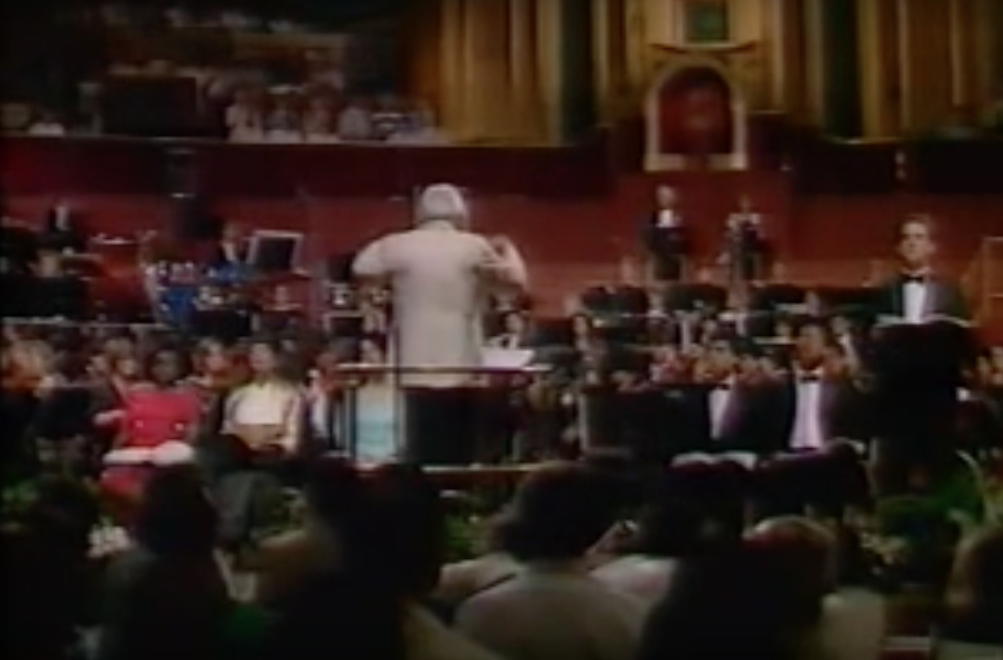
Bernstein: “To What You Said” & “I, Too, Sing America” (London Proms, Bernstein conducting)
1977
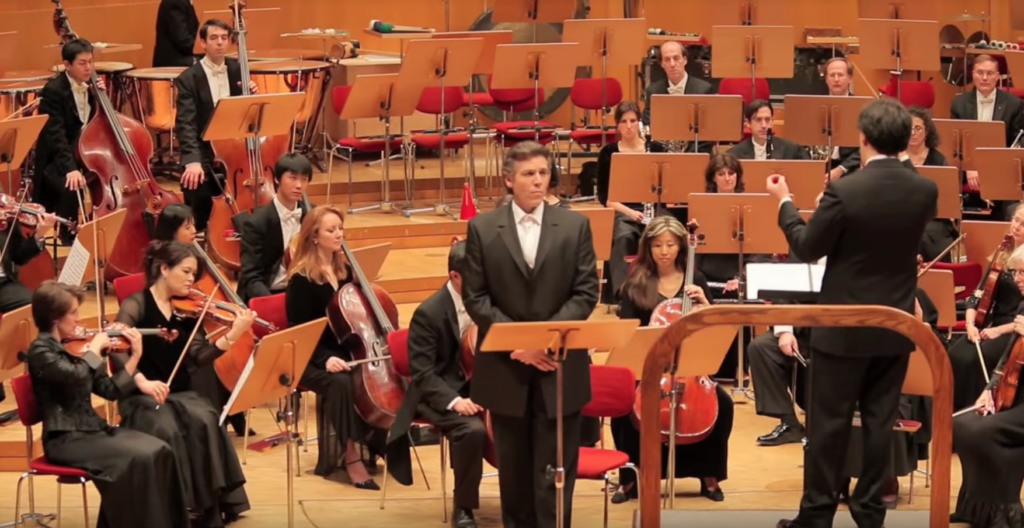
Opening of John Adams’s “The Wound Dresser,” with text by Walt Whitman (Hampson, NY Philharmonic)
2010
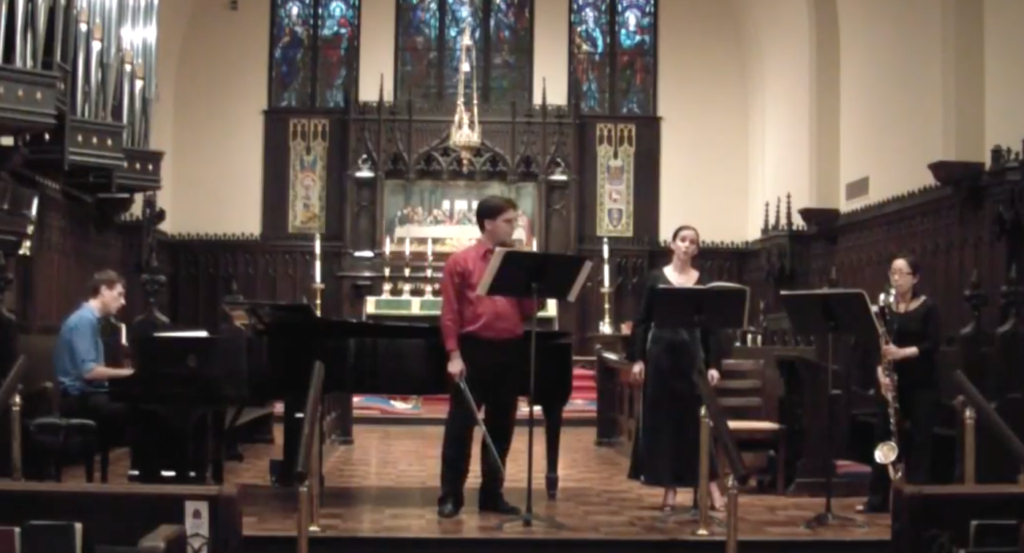
Patterson: “Way of the River”
2014
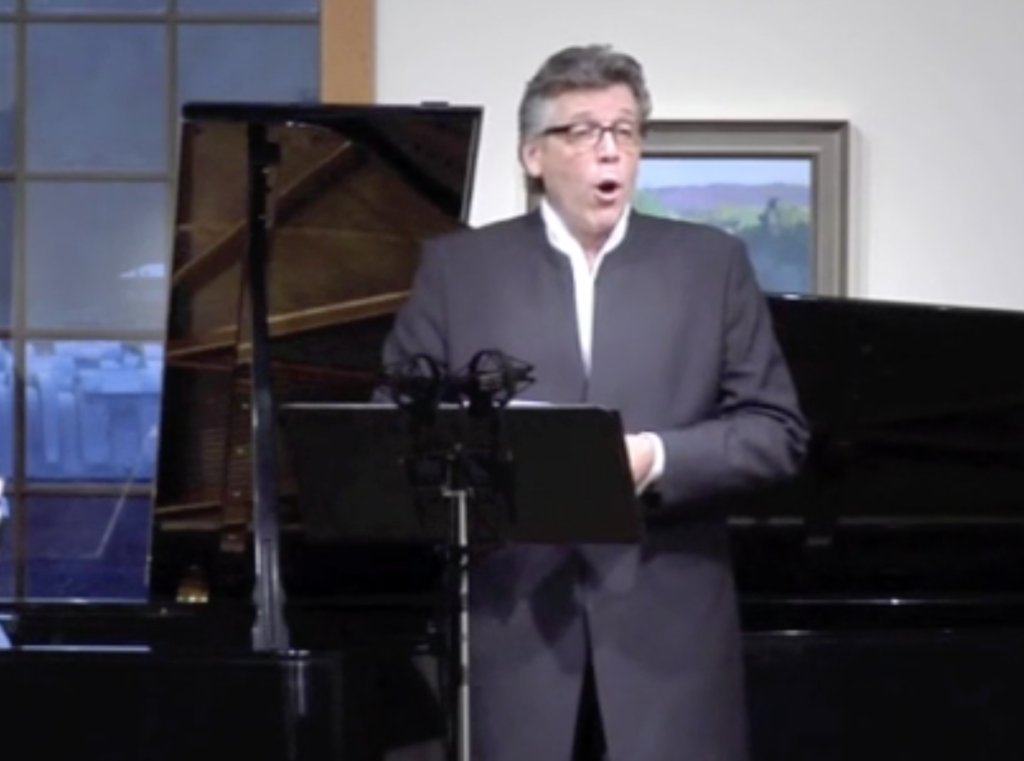
Rorem: “Gliding O’er All”
2010
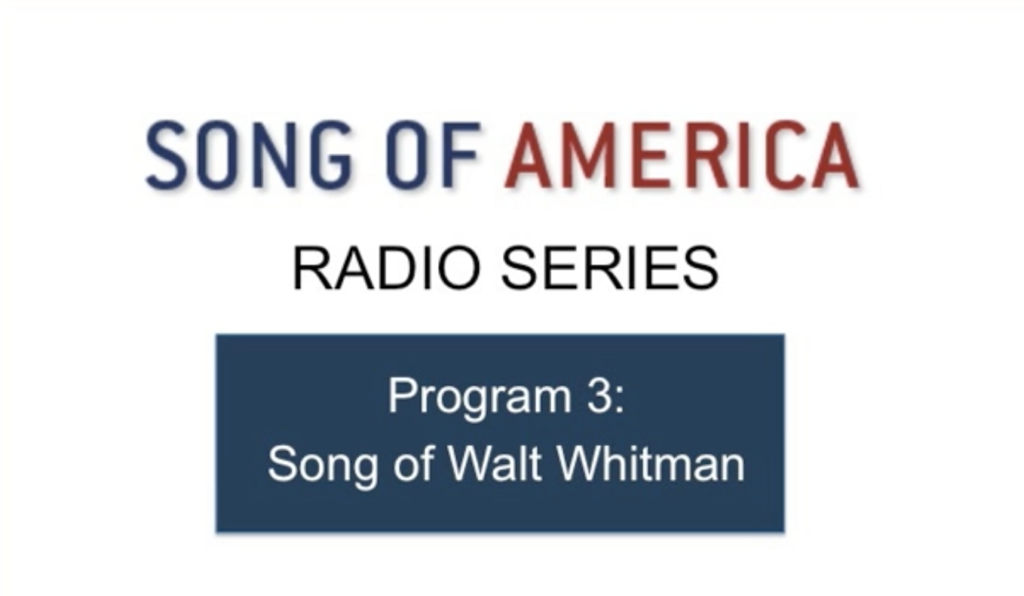
Song of America Radio Series: Program 3, “Song of Walt Whitman”
2010
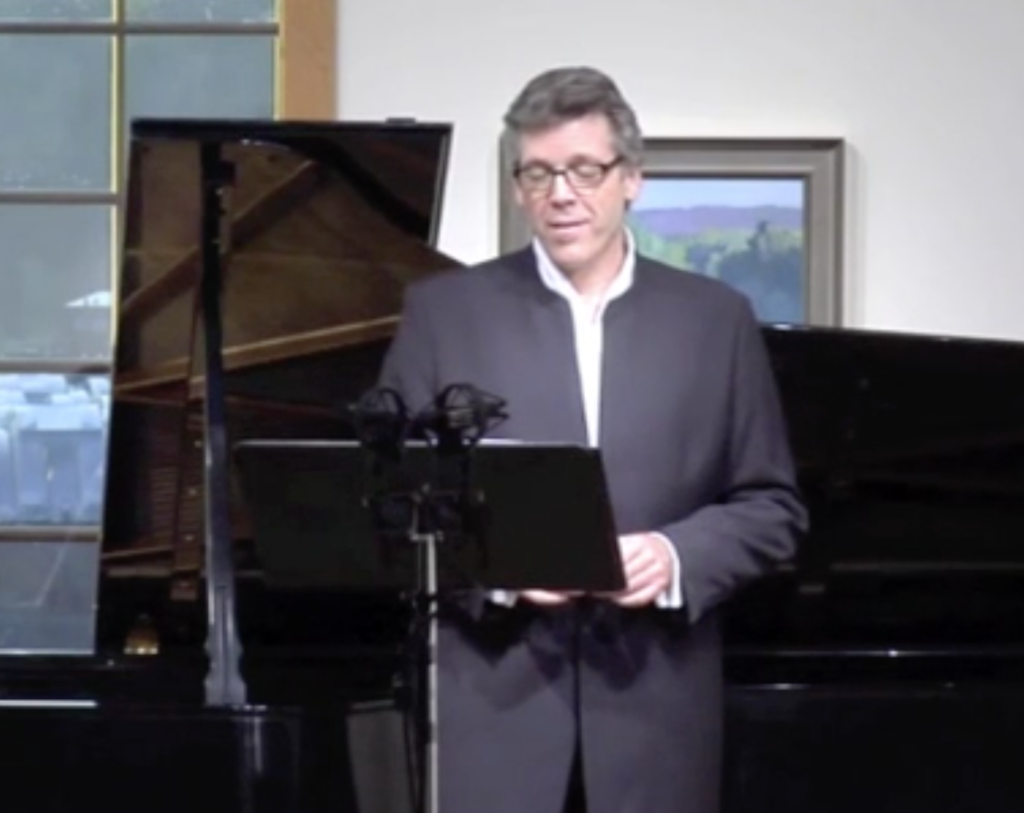
Tilson Thomas: “At Ship’s Helm” (Hampson, Iftinca)
2010
Recordings
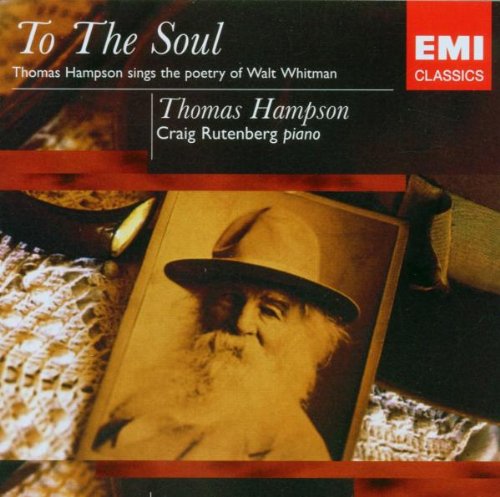
To The Soul - Poetry Of Walt Whitman
(Ernst Bacon, Leonard Bernstein, Henry T. Burleigh, Gerald Busby, Philip Dalmas, Charles Ives, Charles Naginski, Ned Rorem, Robert Strassburg, Michael Tilson Thomas, Kurt Weill, Elinor Remick Warren and Walt Whitman)
1997
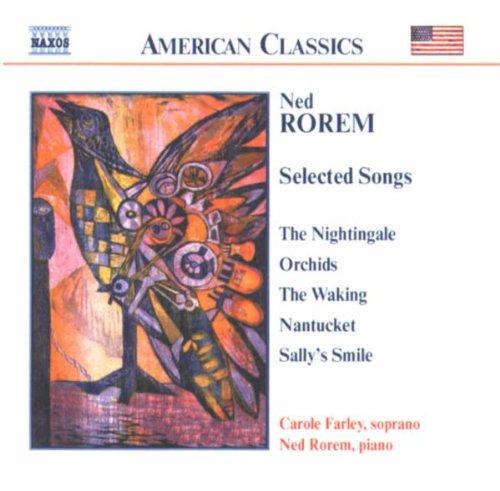
Ned Rorem: Selected Songs
(Ned Rorem and Walt Whitman)
2001
Books
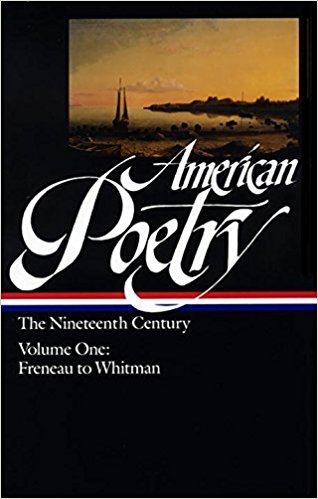
American Poetry: The Nineteenth Century, Vol. 1: Philip Freneau to Walt Whitman
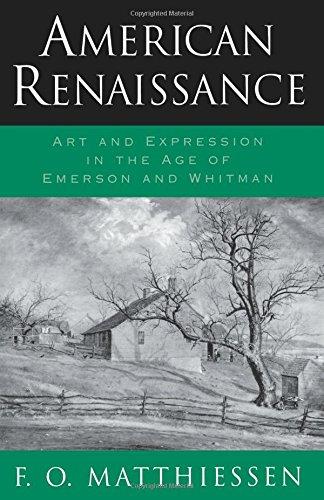
American Renaissance: Art and Expression in the Age of Emerson and Whitman
Centering his discussion around five of its literary giants--Emerson, Thoreau, Hawthorne, Melville, and Whitman--Matthiessen elucidates their conceptions of nature and the function of literature, and the extent to which these were realized in their writings. The breadth of the book lies in the author's use of the five-year period from 1850 to 1855 as a focal point in interpreting what went before and what followed in the development of our prose and poetry.
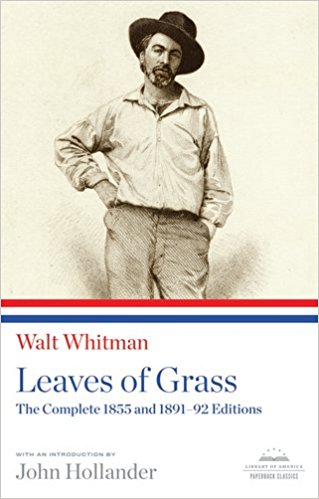
Leaves of Grass
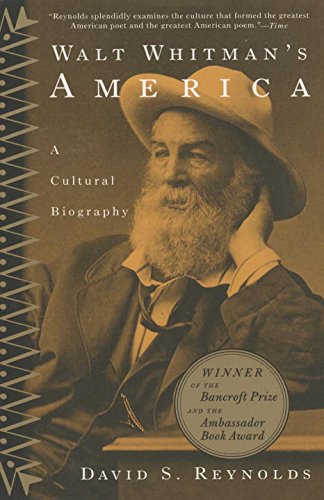
Walt Whitman’s America: A Cultural Biography
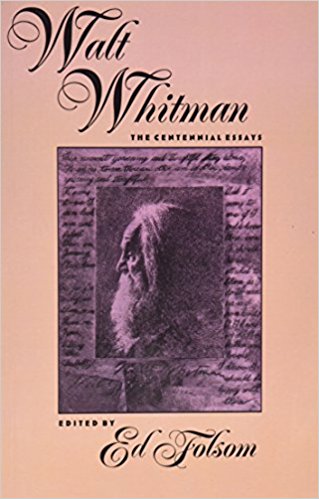
Walt Whitman: The Centennial Essays
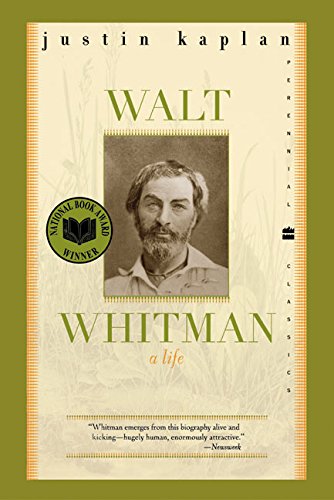
Walt Whitman: A Life
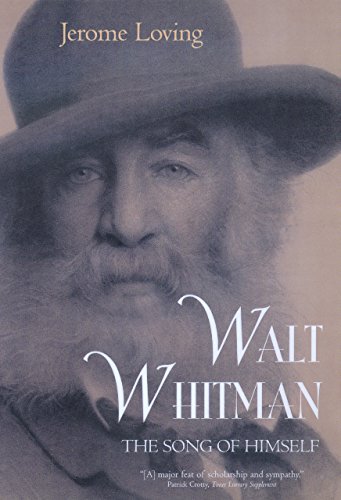
Walt Whitman: The Song of Himself
Sheet Music
14 Songs on American Poetry
Composer(s): Ned Rorem
Song(s): As Adam Early in the Morning (Walt Whitman)
Early in the Morning (Robert Hillyer)
I am Rose (Gertrude Stein)
Memory (Theodore Roethke)
My Papa's Waltz (Theodore Roethke)
Night Crow (Theodore Roethke)
O You Whom I Often and Silently Come (Walt Whitman)
Root Cellar (Theodore Roethke)
Sally's Smile (Paul Goodman)
See How They Love Me (Howard Moss)
Snake (Theodore Roethke)
Such Beauty As Hurts to Behold (Paul Goodman)
The Waking (Theodore Roethke)
Youth, Day, Old Age, and Night (Walt Whitman)
50 Collected Songs
Composer(s): Ned Rorem
Song(s): Clouds
Love
Alleluia
The End
Chromatic Fantasy
For Susan
Orchids
Psalm 150
The Nightingale
Absalom
A Birthday
A Child Asleep in Its Own Life
Conversation
A Journey
The Land of Fear
Little Elegy
The Lordly Hudson
Nantucket
O Do Not Love Too Long
On a Little Bird
Poem for F.
The Serpent
Shelley's Vision
The Sick Wife
Spring (Hopkins)
Spring (Koch)
The Waking
What if some little pain...
While Sodom was occupied
A Glimpse
He Thinks Upon His Death
Philomel
Rain in Spring
You, the young Rainbow
Early in the Morning
Are you the new person?
Catullus: on the Burial of His Brother
Ferry me across the water
I strolled across an open field
I will always love you
Jeanie with the Light Brown Hair
Look down, fair moon
Love in a Life
On a Singing Girl
Sometimes with one I love
Stopping by Woods on a Snowy Evening
Such beauty as hurts to behold
That shadow, my likeness
To a Young Girl
Visits to St. Elizabeths
Voice Type: High & Medium/Low
Buy via Sheet Music PlusCentennial Album
Composer(s): Elinor Remick Warren
Song(s): Includes God Be In My Heart, Sweetgrass Range
Voice Type: High, Low
Buy via Sheet Music PlusDrum-Taps: A Song Cycle of Whitman Poems
Composer(s): Richard Pearson Thomas
Voice Type: Baritone
Buy via Classical Vocal ReprintsQuiet Airs
Composer(s): Ernst Bacon
Song(s): 1. Twilight
2. Gentle Greeting
3. The Divine Ship
4. Of Love
5. Eden
6. The Little Stone
7. Fond Affection
8. Stars
9. The Heart
10. Song of Snow-White Heads
11. The Lamb
12. To Musique, To Becalme His Fever
Six Songs
Composer(s): Ernst Bacon
Song(s): 1. The Banks of the Yellow Sea
2. Ancient Christmas Carol
3. Omaha
4. No Dew Upon the Grass
5. A Clear Midnight
6. World, Take Good Notice
Songfest
Composer(s): Leonard Bernstein
Song(s): 1. The Pennycandystore Beyond The El
2. A Julia de Burgos
3. To What You Said
4. Music I Heard With You
5. Zizi's Lament
6. Sonnet: What Lips My Lips Have Kissed...
Three Calamus Poems
Composer(s): Ned Rorem
Song(s): 1. Of Him I Love Day and Night
2. I Saw in Louisiana a Live-Oak Growing
3. To a Common Prostitute
War Scenes
Composer(s): Ned Rorem
Song(s): 1. A Night Battle
2. A Specimen Case
3. An Incident
4. Inauguration Ball
5. The Real War Will Never Get in the Books
Voice Type: Medium
Buy via Boosey & HawkesWay of the River
Composer(s): Robert G. Patterson
Song(s): 1. from “Sun-Down Poem” (Whitman)
2. Strings in the Earth and Air (Joyce)
3. Psalm 65:9-12 (Douay-Rheims)
4. from “The Elephant's Child” (Kipling)
5. The Ballad of Poor Susan (Wordsworth) Interlude
6. The River/Deep River (Teasdale/Anonymous)

